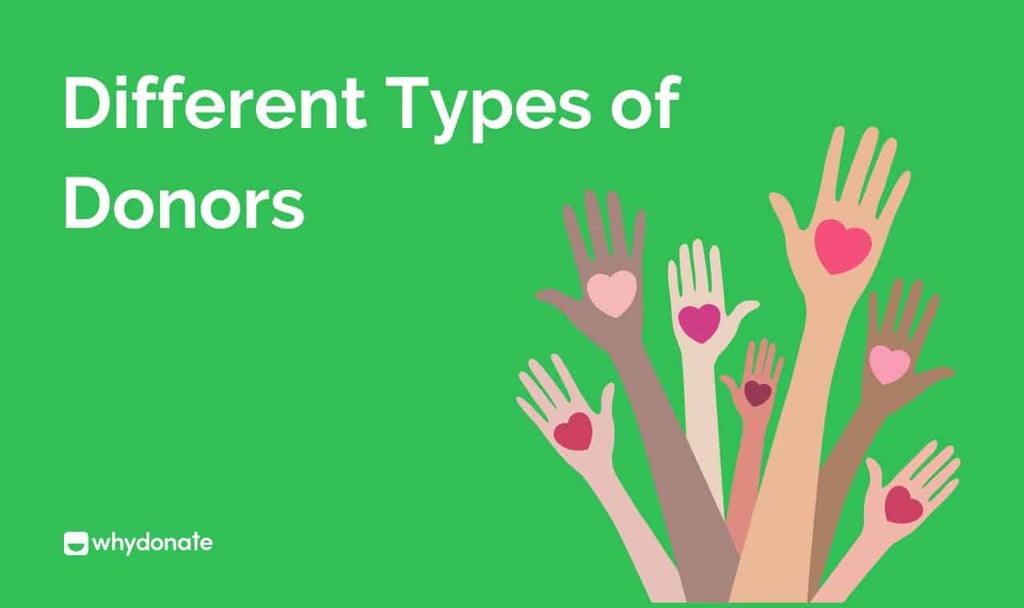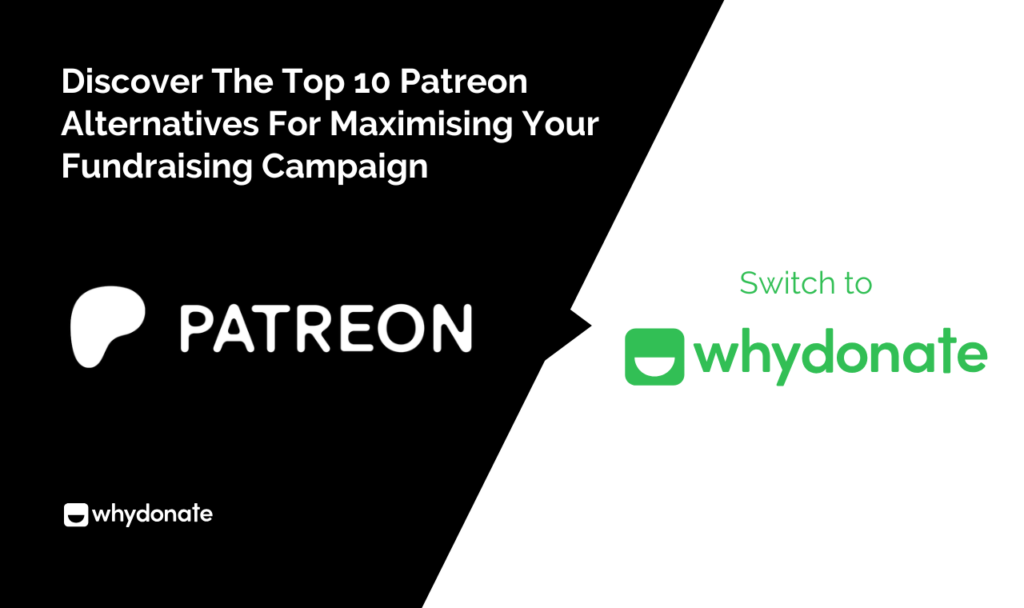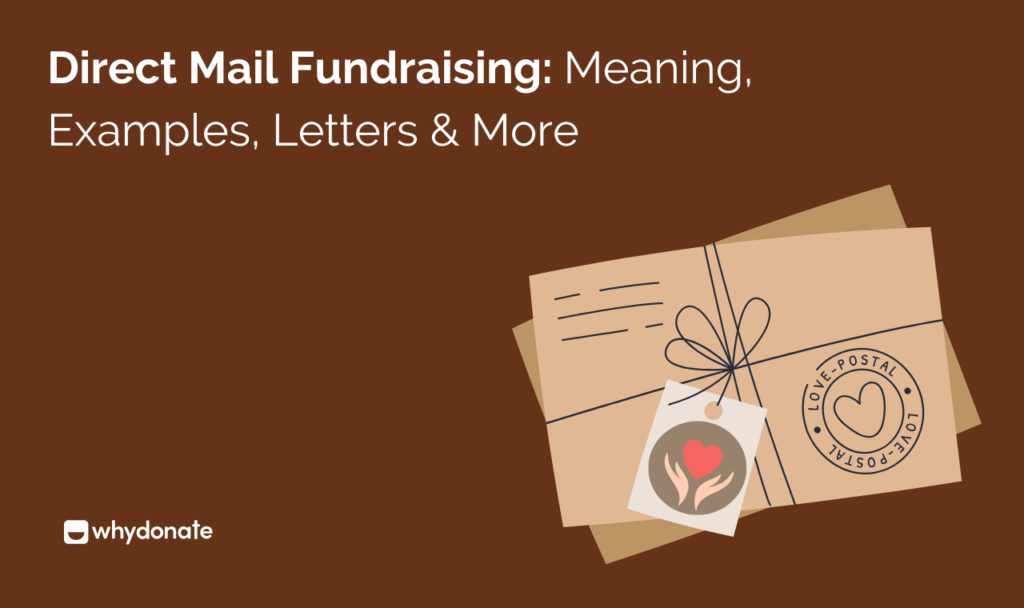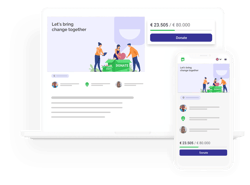Nonprofit fundraising is not just about asking for contributions. It involves planning and implementing effective strategies. One of the most important factors that you should consider when it comes to fundraising is knowing your donors. Having a good understanding of them will allow you to make informed decisions and maximize the support that they give.
Having a deeper understanding of different types of donors can help you target your outreach efforts to their priorities. However, it’s also important to note that not all research is equal. For instance, knowing about your donors’ characteristics can help you make informed decisions.

Table of Contents
How To Get To Know Your Donors:
Getting the proper information about your donors is very important when it comes to raising funds for your organization.
1. Ask Questions
One of the most effective ways to get to know your donors is by asking them about themselves. Although it is fine to ask them about their major donations, it is also important to understand their goals and values.
You can also ask them to share their charitable activities and personal stories. Instead of asking them about their specific cause, you can also ask them about their plans to support it.
Try to avoid questions that are either too general or not very relevant to the topic at hand. Instead, start by asking them about their reasons for giving and how they intend to support your organization.
2. Use Smart Donor Management Tools
The use of powerful donor management software can help identify the top donors in your organization. It goes beyond donation management to consider other factors, such as the type of person they are and how they support your organization.
Nonprofits can easily maintain a good donor database by using a donor management system that allows them to collect and organize all the details of their donations in one place. This platform increases their engagement with their donors.
At the WhyDonate platform, fundraiser creators can manage all their donations and their contributors at the same time on the same dashboard without any hassle.
3. Conduct Surveys
One of the most effective ways to learn more about your donors is through a survey. Through a survey, you can learn more about your potential donors and identify which ones would like to leave a gift in their will.
It can also help you identify areas of concern that would prevent them from making the commitment. In addition to being able to gather information about your potential donors, a survey can also help you identify areas of potential fundraising success.
However, it’s important to remember that you should only gather the data that you need to analyze according to your fundraising campaigns. Doing so will allow you to make informed decisions and improve the efficiency of your fundraising. Keep in mind that while surveys are commonly used to gather information about your donors, they should also be kept short and targeted.

4. Clear Communication
While it’s important to raise funds for your organization, it’s also important to develop strong relationships with your donors to ensure that they will support your mission and stay engaged with you. Having a good understanding of your donors will allow you to identify which activities they are most likely to support and which ones are most likely to leave a lasting impact.
The impact of personal connections and targeted communications can have a long-term positive effect on a donor’s future giving. They are more likely to stay with you for a long time and become involved in your campaigns.
One of the most important factors that you should consider when it comes to developing your campaign plan is ensuring that your communication with potential donors is engaging and fruitful in both ways.
Types Of Donors
1. Individual Donors
Individuals give to your organization for various reasons. They may come to an event to see how you handle your fundraising campaigns, or they may have become a part of the nonprofit after any significant success of a particular fundraising campaign.
Email campaigns or newsletters also can be very effective when it comes to raising funds. Through emails, potential donors get interested in any specific cause and get in touch with organizations for charitable activities. They may also be referred by a friend or family member of theirs who said that they were a part of the organization and they gave a small amount because of that.
2. Sponsorship Or Major Donors
Sponsorship can be a great way for organizations to give back to the community. It can also help them improve their marketing efforts. Sponsorship allows a company to align its brand with the goals of the organization, and it can also help them reach new audiences. Aside from being able to align their brand with the organization’s values, a sponsor also benefits from the deal.
Major donors usually give in large sums once they decide to do so. They may take years to grow their own crops, but they will give in large sums once they decide to. Some may also give a large sum annually, while others may only do so strategically.
3. Corporate Donors
Unlike individual donors, corporate donations are an altogether bigger outlook because of bigger funding sources. Although they may not be as prominent as individuals, corporations still give large donations to charitable organizations.
Often, corporates do charitable activities in order to maintain their corporate social responsibility ethics. They usually expect to receive various marketing opportunities, such as a press release announcing major gifts, a philanthropic presentation photo with the organization’s mission, and publicity for their donations.
Corporations also perform philanthropic activities from time to time in order to help build stronger relationships with their employees.
Funding opportunities are vital to all non-profits. That is why corporates should be identified as key donors and potential donors to fundraisers. Corporations understand that their actions are helping to make a difference in the lives of other groups, and they care deeply about the mission of the organization. That is why Corporates are one of the major donor types that can raise money for any nonprofit organization within a stipulated time.
4. Foundations
These funds are usually given to nonprofits to fund programs that address specific issues. Usually, foundations are the types of financial donors that will only provide grants to organizations that are focused on one or two areas of concern. Nonprofits can also find grants through companies that specialize in grant research or through government agencies.
Nonprofits should start building strong relationships with their board members and other government grants or donor profiles to ensure that they are able to receive more money.
5. Recurring Donors
One of the most common types of donations that organizations can receive is recurring giving. This type of giving is when a donor chooses to make a regular monthly or yearly donation to the organization. These donations are referred to as recurring gifts or recurring donations.
Being able to communicate with your recurring donors is a great way to keep them informed about how you’re doing your work and how their support is helping you reach your goals. It also allows you to connect with them directly and inspire them to continue contributing.
Answering Popular Donor Related FAQS
Q. How do you classify donors?
A. Organisations group their donors into various types to make it easier to target their content and reach out to them. This strategy helps them identify the most effective message for each group. Donors can be classified based on their donation amount, frequency of their donation, donation type, or communication type (email/text).
Q. What is the difference between donor and sponsor?
A. Although the terms sponsorships and donations are often used interchangeably, they are very different concepts. The difference between sponsorship and donation is that donations can be in the form of goods and services, while sponsorships are usually cash donations.

















